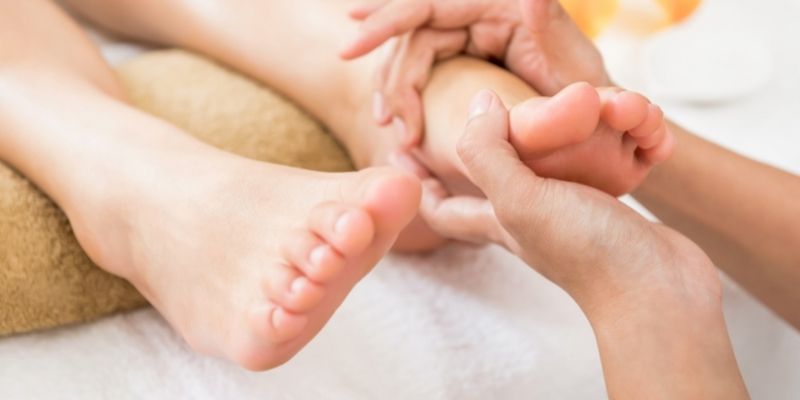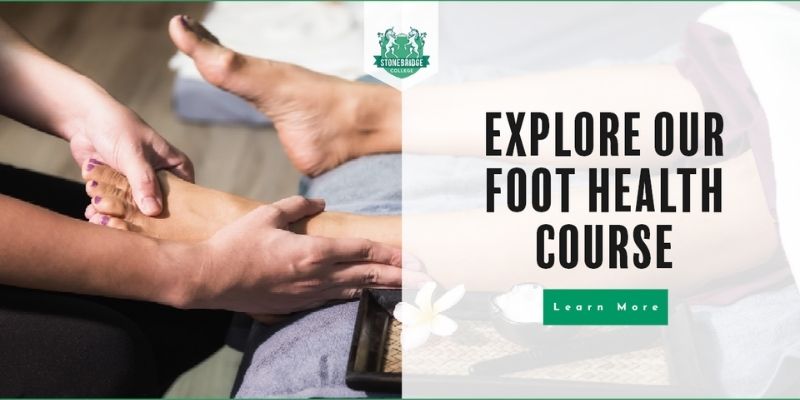
We all do our bit to maintain a healthy balance in our lives, and part of that balance is looking after our physical health. There are areas of the body that people tend to focus on, whether that be trying to lose weight or building muscle strength after an injury. One area that people generally neglect is their feet.
Foot health, though, is incredibly important. Feet are pivotal in our ability to be mobile, and if significant problems occur, it can severely hamper our lives. Unfortunately, many people only prioritise foot health when they have an issue, but it is beneficial in the long-term for us all to give our feet some regular TLC.
Given the importance of foot health, it is no surprise that the role of a Foot Health Practitioner is essential. One of the many great things about working in Foot Health Practitioner jobs is that you don’t need to study a degree to qualify as a Foot Health Practitioner. If you are interested in embarking on this line of work, then continue reading! We provide you with everything you need to know about the world of foot health.
What Does a Foot Health Practitioner Do?
A qualified Foot Health Practitioner provides care and maintenance for feet, as well as advice on how best to look after your foot health. If you are keen to work in this profession, you will be responsible for assessing the condition of a patient’s feet and treating mild problems. For more serious issues, you will be able to refer them to an advanced specialist.
As well as treating certain problems, part of your job will be to promote good foot health, and you can do this by advising patients on the types of shoes they should wear depending on the condition of their feet. You will also provide tips and tricks on how your patient can maintain healthy feet.
During the role, you will have an assortment of tasks and treatments to complete, all varying in degrees of severity. For one patient, you may need to cut toenails while for another you may have to treat a verruca problem.
It is important to be aware of the fact that while working as a Foot Health Practitioner, you may have patients that have existing health problems that affect the condition of their feet. Individuals living with diabetes, for example, have to take extra care of their foot health. By undertaking a recognised Foot Health Practitioner course during your training, you will learn how to treat patients with specific conditions and disorders.
Why Foot Health Matters
Like all other integral parts of our body, feet play a crucial role in our mobility and overall health. This is because without the use of our feet, our quality of life can diminish. By studying a Foot Health Practitioner course, you will learn the importance of foot health, as well as interesting facts about feet, such as the fact that feet have more than:
- 50 bones
- 200 muscles
- 60 joints
Any product or machine that has intricate engineering must be taken care of properly, and feet should be considered in the same vein. Think of it this way; all the activities you do on a daily basis, could you do them without the use of your feet?
As a qualified Foot Health Practitioner, you will be responsible for helping patients take care of their foot health and for treating those that have mild conditions. Most activities are negatively impacted by foot pain, and there is a risk that a person will lose their self-sufficiency if their feet are injured or suffering due to a condition. Poor foot health can lead to:
- A drop in work performance
- Inability to exercise
- Higher risk of heart disease and diabetes
- Loss of muscle mass
- Reduced endurance

Common Foot Problems
It is no surprise that people experience foot issues at some point in their lives. Feet are active and under strain all day every day, so if you don’t look after your foot health, you are more at risk of problems arising later down the line.
Foot Health Practitioner jobs involve a range of treatments for common foot problems, of which we have outlined below:
Blisters
One of the most common feet issues are blisters. They are usually caused by footwear that rubs against the skin due to not fitting correctly. Most people will not require the assistance of a Foot Health Practitioner to treat blisters because they tend to heal on their own. However, blisters can become aggressive, starting with minor discomfort, and leading to severe pain.
Calluses
Some people mistake calluses for blisters, but a callus is much more robust. At this point, the skin has hardened and has formed a thick layer because of friction from footwear. The layer acts as a protector to the softer skin beneath it, preventing further damage.
Corns
One of the most frequent treatments that a Foot Health Practitioner performs is on corns. Both hard corns and soft corns can appear on the foot, with most forming on the bottom or the sides. Small patches of thick, dead skin are hard corns, while soft corns are thinner. Seed corns are small and can be very painful if formed on the sole of the foot.
A Foot Health Practitioner will be able to start a course of treatment that will rid feet of corns in a safe and effective manner.
Ingrown Toenails
An ingrown toenail occurs when a nail grows within the skin of the toe as opposed to over it. The cause of this can differ, but generally, wrongly fitted shoes or poor nail trimming can lead to this issue. In many Foot Health Practitioner jobs, a patient will seek treatment for ingrown toenails, but in instances of infection, they will have to be referred to a specialist.
What Equipment Does a Foot Health Practitioner Need?
Generally, a Foot Health Practitioner will have a series of equipment sets based upon the number of patients they treat. While the equipment used in Foot Health Practitioner jobs differ, a professional will generally have the following instruments:
- Nail nippers
- Foot file
- Swan neck probe
While studying your Foot Health Practitioner course, you will be taught how to use certain equipment and the instruments you will need to perform treatments.

What Do Foot Health Practitioners Charge?
The amount you charge can differ depending on the employment route you take. If you decide to set up your own business as a Foot Health Practitioner, then you have more freedom over how much you charge. As a self-employed professional that either owns their own clinic or operates a mobile service, you could charge between £20 to £40 depending on the treatment.
If you are working for a clinic, then you have the potential to earn a salary of between £21,500 and £23,000 per year from Foot Health Practitioner jobs.
How to Become a Foot Health Practitioner
A regulated Foot Health Practitioner course is the best option to take for anyone aspiring to work in this field. You don’t need a degree to achieve the role, but you will need to undergo training to work professionally.
Stonebridge Associated Colleges delivers an online regulated course that will teach you everything you need to work in Foot Health. The Foot Healthcare Practitioner (RQF) Diploma Level 3 course offers a blend of online learning and practical training to get you qualified for the role.
The practical element of your Foot Health Practitioner course consists of five days at a state-of-the-art clinic in Birmingham, where you will be able to interact with patients and help administer treatments. You will be overseen and supported by tutors who have experience as Foot Health Practitioners.
Alongside your one-week practical, you will study the following topics during the online portion of your Foot Health Practitioner course:
- Anatomy and physiology
- Infection prevention and control
- Pathologies and treatments for foot health
- Managing foot care for diabetic patients
- Preparations for clinical practice
- Setting up and managing a professional practice
To achieve your diploma, alongside completing your practical training, you will need to complete a question paper based on each one of the 6 theory lessons that you study. We advise that you allow 1-2 hours of study per question paper.
Enrol Today!
If you are keen to pursue Foot Health Practitioner jobs but have no prior experience, then enrolling on a Foot Health Practitioner course is the best step to take! To find out more details about your options, give one of our Course Executives a call on 0121 392 8288. Alternatively, contact us online or click below to learn more!






Leave a Reply